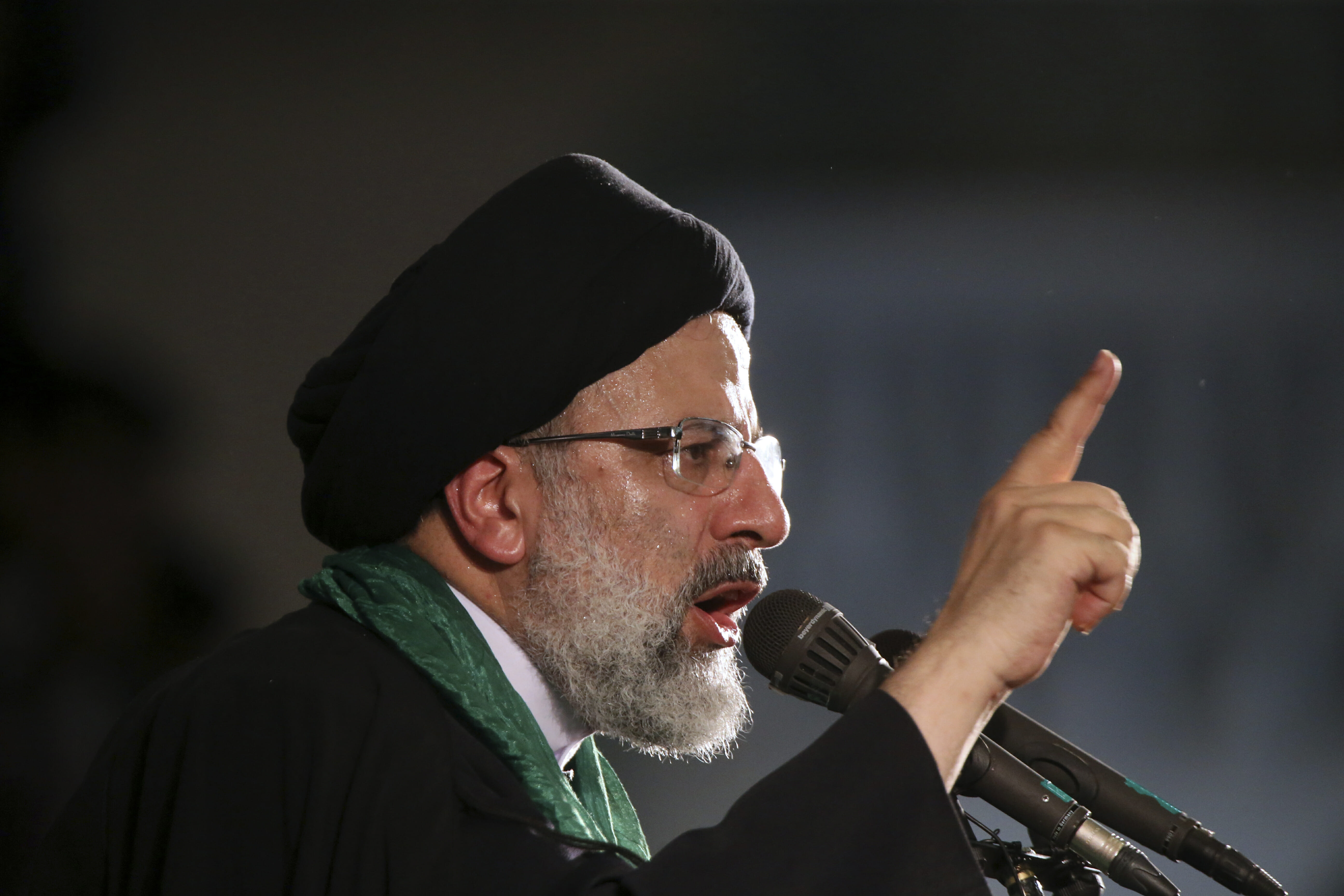
Iran appoints hard-line cleric as new judiciary chief
DUBAI, United Arab Emirates (AP) — A hard-line cleric once thought to be a possible successor to Iran’s supreme leader was appointed head of the Islamic Republic’s judiciary Thursday, sparking concern from rights activists over his involvement in the execution of thousands in the 1980s.
Ebrahim Raisi was named to the post in a decree by Supreme Leader Ayatollah Ali Khamenei, the semi-official Fars news agency reported.
Raisi’s selection comes after he was trounced by incumbent Hassan Rouhani in the country’s 2017 presidential election. That loss, as well as other concerns, now have some analysts suggesting the move takes him out of the running to become the next supreme leader to replace Khamenei, who will turn 80 this July.
Speculation that Raisi could be named to the post also had sparked criticism from the U.S., which under President Donald Trump has withdrawn from Tehran’s nuclear deal with world powers.
Raisi, “involved in mass executions of political prisoners, was chosen to lead #Iran’s judiciary. What a disgrace!” Robert Palladino, a deputy State Department spokesman, wrote on Twitter on Tuesday. “The regime makes a mockery of the legal process by allowing unfair trials and inhumane prison conditions. Iranians deserve better!”
Rumors began months ago that Khamenei would appoint Raisi, 58. He will replace Sadegh Amoli Larijani, a conservative cleric who is the brother of Iran’s parliamentary speaker Ali Larijani. Khamenei had appointed Larijani as the head of the country’s Expediency Council, which mediates differences between the country’s Parliament and its Guardian Council, Iran’s constitutional watchdog.
Khamenei has praised Raisi, a former Iranian attorney general, in the past.
In 2016, Khamenei appointed Raisi to run the Imam Reza charity foundation, which manages a vast conglomerate of businesses and endowments in Iran. It is one of many bonyads, or charitable foundations, fueled by donations or assets seized after Iran’s 1979 Islamic Revolution. These foundations offer no public accounting of their spending and answer only to Iran’s supreme leader. The Imam Reza charity, known as “Astan-e Quds-e Razavi” in Farsi, is believed to be one of the biggest in the country. Analysts estimate its worth at tens of billions of dollars as it owns almost half the land in Mashhad, Iran’s second-largest city.
At Raisi’s appointment to the foundation in 2016, Khamenei called him a “trustworthy person with high-profile experience.” That led to analyst speculation that Khamenei could be grooming Raisi as a possible candidate to be Iran’s third-ever supreme leader, a Shiite cleric who has final say on all state matters and serves as the country’s commander-in-chief.
However, his loss in the 2017 presidential election has cooled some to that, though he still garnered nearly 16 million votes in his campaign.
“The supreme leader is trying to make a balance between all political factions in Iran by appointing Raisi,” said Mehdi Motaharinia, a political science professor at Islamic Azad University in Tehran and Qom.
Activists, however, hold a far different view of Raisi over his involvement in the 1988 mass execution of prisoners at the end of Iran’s long war with Iraq. After Iran’s then-Supreme Leader Ruhollah Khomeini accepted a U.N.-brokered cease-fire, members of the Iranian opposition group Mujahedeen-e-Khalq, heavily armed by Saddam Hussein, stormed across the Iranian border in a surprise attack.
Iran ultimately blunted their assault, but the attack set the stage for the sham retrials of political prisoners, militants and others that would become known as “death commissions.” Some who appeared were asked to identify themselves. Those who responded “mujahedeen” were sent to their deaths, while others were questioned about their willingness to “clear minefields for the army of the Islamic Republic,” according to a 1990 Amnesty International report.
International rights groups estimate that as many as 5,000 people were executed, while the MEK puts the number at 30,000. Iran has never fully acknowledged the executions, apparently carried out on Khomeini’s orders, though some argue that other top officials were effectively in charge in the months before his 1989 death. Raisi reportedly served on a panel involved in sentencing the prisoners to death.
In 2016, members of the late Grand Ayatollah Hossein Ali Montazeri’s family put out an audio recording of him criticizing the executions as “the biggest crime in the history of the Islamic Republic.”
Raisi has never publicly acknowledged his role in the executions, even while campaigning for president.
Given that his predecessor Larijani was named to a U.S. sanctions list, Raisi likely can expect the same. He also takes over a judiciary widely criticized by international rights groups for being one of the world’s top executioners, as well as conducting closed-door trials of those with Western ties.
“Raisi should be prosecuted, not head of Iran’s judiciary,” said Hadi Ghaemi, head of the New York-based Center for Human Rights in Iran. “The selection of Raisi to serve as head of the judiciary will send a clear message: The rule of law has no meaning in Iran, and those who participated in mass murder will be rewarded.”
Khamenei is expected to formally appoint Raisi as soon as Friday to a five-year term that can be extended.
___
Vahdat reported from Tehran, Iran.
The Western Journal has not reviewed this Associated Press story prior to publication. Therefore, it may contain editorial bias or may in some other way not meet our normal editorial standards. It is provided to our readers as a service from The Western Journal.
Truth and Accuracy
We are committed to truth and accuracy in all of our journalism. Read our editorial standards.
Advertise with The Western Journal and reach millions of highly engaged readers, while supporting our work. Advertise Today.












